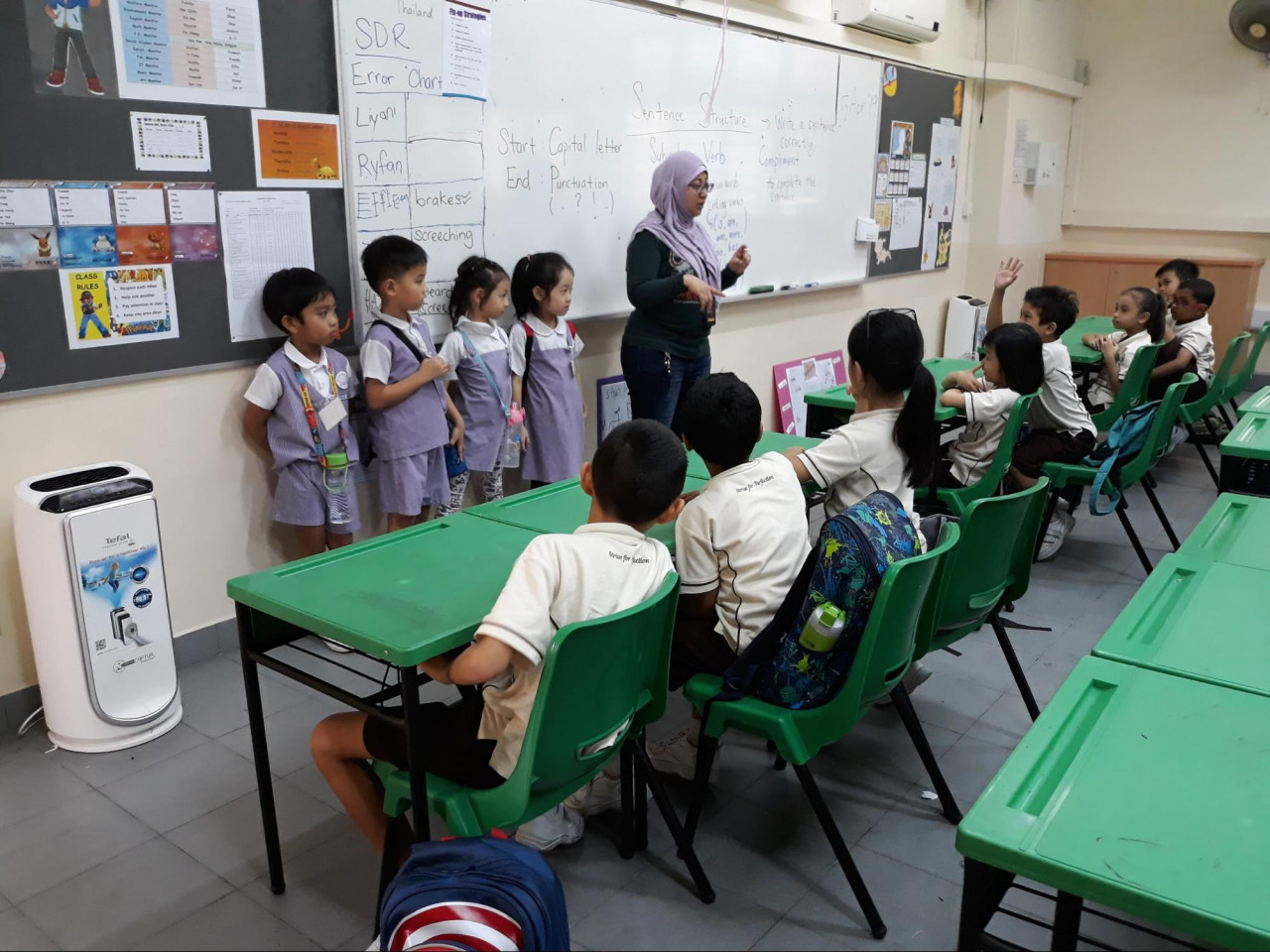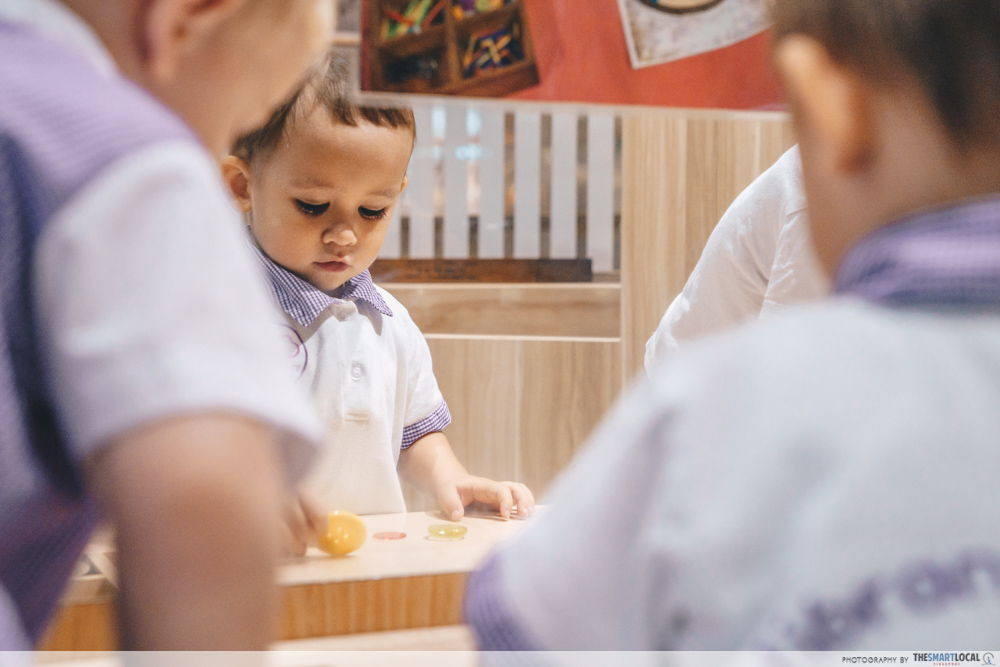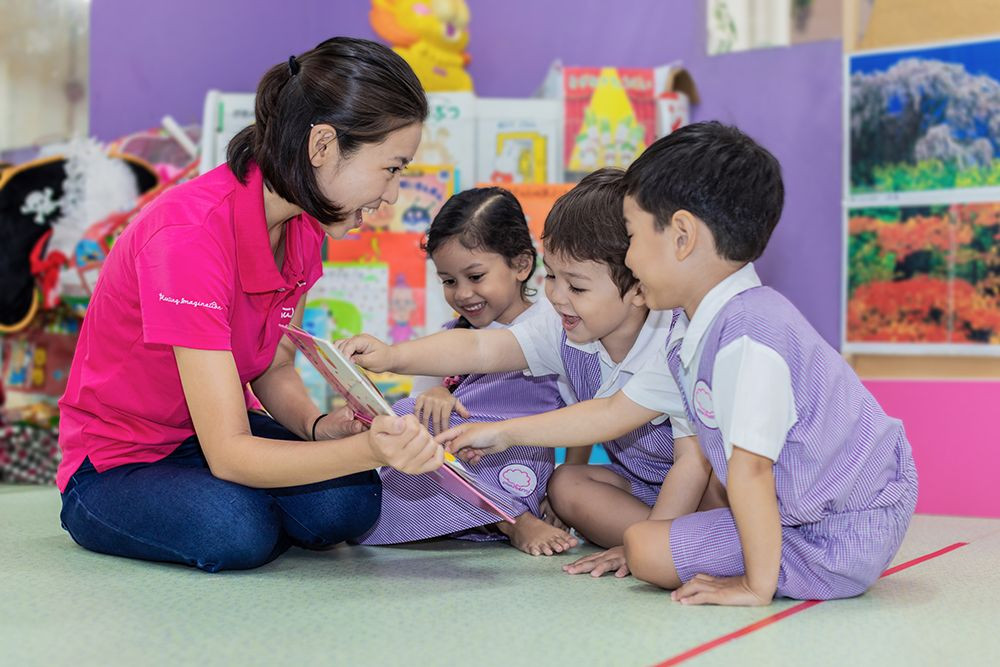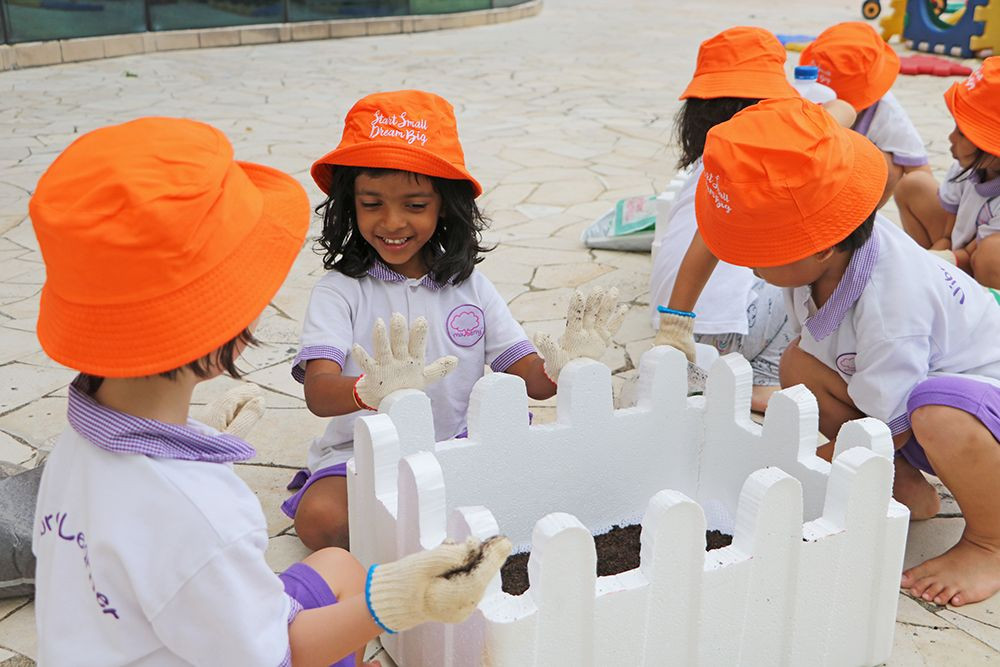Unique preschool learning practices
A good preschool shouldn’t be a mere childcare facility where you drop your kid off to tinker with toys for hours on end. As the stepping stone between early childhood and the start of their formal education journey, these formative years ought to be maximised fully.
Mulberry Learning adopts a range of techniques which tap into the full learning potential of preschoolers, incorporating specially-tailored daily routines as well as new-age teaching concepts like Reggio Emilia and Habits Of Mind.
1. Regular field trips to experience gardening, farm life and aviation
 Image adapted from Mulberry Learning Centre
Image adapted from Mulberry Learning Centre
Giving us a major case of envy, the tiny tots at Mulberry Learning are treated to regular field trips as a method of gathering information and exploring a topic.
 Image credit: Mulberry Learning Centre
Image credit: Mulberry Learning Centre
Recent excursions gave them the chance to develop a green thumb at Edible Garden City and discover the differences between army planes and regular passenger planes at the Air Force Museum, just to name a few.
 A field trip to Boon Lay Garden Primary School gave the children a taste of their next chapter in education, giving them much to look forward to.
A field trip to Boon Lay Garden Primary School gave the children a taste of their next chapter in education, giving them much to look forward to.
Image credit: Mulberry Learning Centre
Lessons taking place in the real world stay within a child’s mind far longer than their exit from a classroom. The fresh setting also piques the interest levels of students in an organic manner, stimulating their inquisitive nature.
2. Using Habits Of Mind – a framework used by MOE’s gifted education programme

There are universally “bad” habits such as biting your nails and shaking your leg, but what are some good habits to develop at a young age? Mulberry Learning follows the Habits Of Mind curriculum, which identifies 16 key habits to aid in the dilemmas of everyday life. These include essential concepts such as managing impulsivity – the ability to manage one’s emotions and thinking before acting, hence preventing rash behaviour and unintended consequences.
Shifting away from a sole focus on grades, imparting soft skills such as impulse management and flexible thinking fulfil the crucial development of a strong Emotional Quotient (EQ).
Click here to find out more about Habits Of Mind.
3. Encourage discussions and self-directed learning with a renowned Italian teaching approach
 Image credit: Mulberry Learning Centre
Image credit: Mulberry Learning Centre
Originating from Italy as a progressive approach in early childhood education, Reggio Emilia is centred around self-directed learning. Harnessing the forces of a child’s innately curious mind, the teaching concept allows ample freedom for students to discover the world around them.
Instead of committing entire textbooks’ worth of information to memory without actually processing the information, kids form their own understanding based on observations, interactions and communication. They’re eager to unearth the “whys” and “hows”, and they’re vocal enough to question their doubts and engage in discussions to gain an even deeper understanding.
4. Getting a head-start in math and languages through Mulberry Learning’s signature programmes
 Image credit: Mulberry Learning Centre
Image credit: Mulberry Learning Centre
Under a collection of programmes called iLearn, Mulberry Learning follows a systematic pathway for kids to stay on top of their new learnings and prevent intimidation or aversion when difficulties arise.
Students get to boost their competency across all subjects and enter primary school as confident and well-rounded learners. Here’s a glimpse of what the curriculum entails:
Literacy Fun – Allows children to develop an extensive vocabulary to facilitate self-expression. By the time they enter primary school, he or she would inherit a whopping average of over 4,500 words.
Math Quest – Familiarisation with shapes and patterns, counting, measurements and spatial concepts. By the end of kindergarten, students would also be able to grasp basic addition, subtraction, multiplication and division processes.
Chinese Master – Not neglecting the importance of Mother Tongue, Mulberry Learning teaches more than 2,000 words, 80 Chinese idioms and 16 classic poems to children by kindergarten age.
5. Daily programmes where students can take the next step on their own
 Image credit: Mulberry Learning Centre
Image credit: Mulberry Learning Centre
The meticulous structuring of day-to-day proceedings at Mulberry Learning goes beyond slotting classes into a timetable. At various junctures of the students’ routines, teachers take a step back and empower the children to pause and ponder their next step.
Independent practices such as verbalising their feelings, utilising their 5 senses to observe surroundings, zoning in on an informed choice and processing the consequences of each action are all encouraged. Be it during formal lessons or playtime, the lack of spoon-feeding from adults leads to a heightened sense of autonomy for the kids.
6. Presentations every semester to get kids used to long-term project work
 Image credit: Mulberry Learning Centre
Image credit: Mulberry Learning Centre
A virtue highlighted as one of the Habits Of Mind, Mulberry Learning provides a tangible way of practising persistence through a project presentation at the end of every semester. The grand affair invites proud parents for a carnival-cum-sharing party featuring dramatisation and showcases of students’ work over the months.
Nothing beats the rewarding satisfaction of seeing your labour bear fruit, especially after a sustained period of continual effort. Experiencing the payoff at such a tender age allows children to strive for future gratification, without apprehension regarding the duration required.
Unconventional learning methods at Mulberry Learning
With all the above methods combined, a child is able to develop both their IQ and EQ levels in preparation for the next chapter in youth and education. Not subscribing to the “all work and no play” belief whatsoever, Mulberry Learning is also decked out with next-level facilities like mini race tracks and a huge indoor sand playground.
Whether it’s securing an advanced understanding of essential school subjects or honing their social skills and problem-solving abilities, the rigorous curriculum gives the young ones a vital edge over their peers.
Find out more about Mulberry Learning here
This post was brought to you by Mulberry Learning.